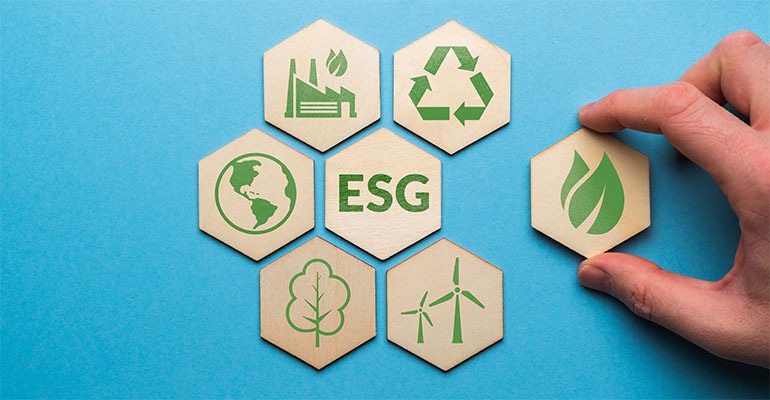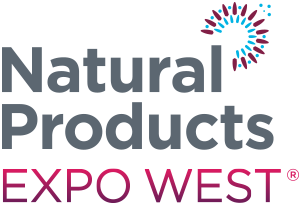
An under-reported yet potentially game-changing announcement for CPG and supply chain companies was made at the United Nations Climate Change Conference in Glasgow (COP26).
Recognizing that financial markets need to assess the risks and opportunities facing companies that arise from environmental, social, and governance (ESG) issues, multiple stakeholders including the United Nations, World Bank, International Monetary Fund, World Economic Forum and an alliance of sustainability standards setters announced the formation of the International Sustainability Standards Board (ISSB).
The intention of the ISSB is to provide uniform, high quality, global standards by industry sector for ESG management, communications and reporting. Why? Because the markets and savvy investors recognize the link between ESG risks and financial opportunities. To make sound investment decisions, reward companies taking action to manage climate risk—and avoid those that aren't—investors need consistent and verifiable metrics.
A brief history of ISSB
More than 15 years ago, Prince Charles, financier Michael Bloomberg and others were interested in creating a new reporting system better suited for the 21st century—moving beyond finance to provide timely, relevant information across a number of topics, including the environment and human rights. Many initiatives gave rise to an alphabet soup of organizations and programs, resulting in the development of multiple financial disclosure frameworks and a jumble of reporting standards.
One organization that gained traction, the Sustainable Accounting Standards Board (SASB), was founded in 2011 to help businesses and investors develop a much-needed common language around the financial impacts of sustainability. The SASB's widely adopted ESG guidance framework provides sustainability accounting standards that help public corporations disclose material, decision-useful information to investors.
Financial reporting and ESG reporting: Two sides of the same coin
It helps to think about this in the context of financial reporting. Prior to the creation of the Securities and Exchange Commission (SEC) in 1934, financial reporting was regulated at the state level to protect the public from fraud. Largely considered ineffective, the stock market crash in 1929 eliminated what little public confidence was left in U.S. markets. The SEC was created to restore public confidence, prevent fraud and ensure a fair and level playing field. Public companies are required to follow Generally Accepted Accounting Principles (GAAP) to ensure their financial reporting is transparent and consistent from one organization to another, across states and countries.
The ISSB's parent organization, the International Financial Reporting Standards (IFRS) Foundation, governs financial reporting standards in 166 countries. Applying the structure and uniformity of financial reporting has long been hailed as the solution to ESG reporting challenges.
What the food industry needs to know
When the ISSB launched, former Danone CEO Emanuel Faber was appointed its chair. Faber's leadership has long demonstrated the importance of incorporating sustainability into governance, strategic decision making and sustainability reporting to global capital markets.
His influence on the ISSB, particularly in the area of agriculture and food, will be interesting. The SASB standards, which have been absorbed into the IFRS Sustainability Disclosure Standards, outline the ESG issues most relevant to financial performance across 77 industries, including agriculture and food. Specifically, the Agriculture Products Sustainability Accounting Standard covers eight topics:
Greenhouse gas emissions.
Energy management.
Water management.
Food safety.
Workforce health and safety.
Environmental and social impacts of ingredient supply chains (including certifications).
GMO management.
Ingredient sourcing.
Further refinements to the standard are expected soon. There is no doubt that, among many impacts, ESG reporting in this sector could accelerate the transition to regenerative agriculture.
While many CPG and supply chain companies already measuring and report on some aspects of ESG issues, is the industry going far enough? Do leaders understand the impacts of externalities—production and distribution—of their products and services? Do they internalize those costs? Certainly, food industry leadership knows measuring impacts is the right thing to do; a lot know it's the smart thing to do; but could it ultimately be something they have to do?
Reading tea leaves
The U.S. has dragged its feet on adopting any ESG reporting requirements, and the SEC is likely to face significant legal pushback should it come out with sustainability standards later this year. Nonetheless, capital markets are international. Nestlé and U.K. food giant Marks & Spencer are among those that recently backed a new, on-pack, eco-labeling scheme for groceries. The label conveys the environmental impact of all parts of the supply chain for food, including farming, processing, packaging and transportation to stores. An overall grade is given based on the carbon footprint, water and biodiversity impacts. The program is expected to roll out across the United Kingdom and European Union later this year. In addition, the French government is seriously considering mandating a label for all food products that conveys the total ESG score based on the SASB standard.
The times they are a-changin'
The California Senate just passed the Climate Corporate Accountability Act, advancing the first law in the U.S. requiring any company doing business in California that generates $1 billion or more in gross revenues to disclose all emissions. This requirement not only covers Scope 1—the direct emissions resulting from those activities under companies' control—but also Scopes 2 and 3, the emissions that result from the electricity they use and all other indirect emissions, including those from their supply chains. Recall the impact the most populous state in the nation had on the auto industry when it set higher fuel standards than the federal government, and you'll recognize the potential impact of this law.
Last year, the SEC started work on a new rule that will require U.S. listed companies to provide investors with detailed disclosures on how climate change could affect their businesses. The rule is part of a broader effort, led by President Joe Biden, to address climate change challenges and cut greenhouse gas emissions in half by 2030. A draft of a landmark climate change rule is expected soon.
While uncertainty surrounds which emissions scopes will be included and whether reporting should be added to a company's financial filings or provided separately, one thing is certain: The times they are a-changin'. As capitalist oracle Larry Fink of Black Rock recently shared in his annual letter to CEOs, "We ask businesses to demonstrate how they're going to deliver on their responsibility to shareholders, including through sound environmental, social and governance practices and policies." It's time we asked our own industry the same question.
Elizabeth Candelario is the director of Strategic Partnerships at Mad Agriculture, a Boulder, Colorado, company that helps farmers implement regenerative methods to improve the planet's health and increase their financial wealth.

Elisa Turner, founder at Impakt IQ
Kayalin Akens-Irby, chief of staff at Planet FWD
Melanie Hall, director of Brand Marketing at Kashi
Elizabeth Candelario, director of Strategic Partnerships at Mad Agriculture
Explore the Natural Products Expo West agenda and the NPEV agenda to learn more and make your plans. Access to NPEV is included with Expo West in-person registration.
About the Author(s)
You May Also Like





